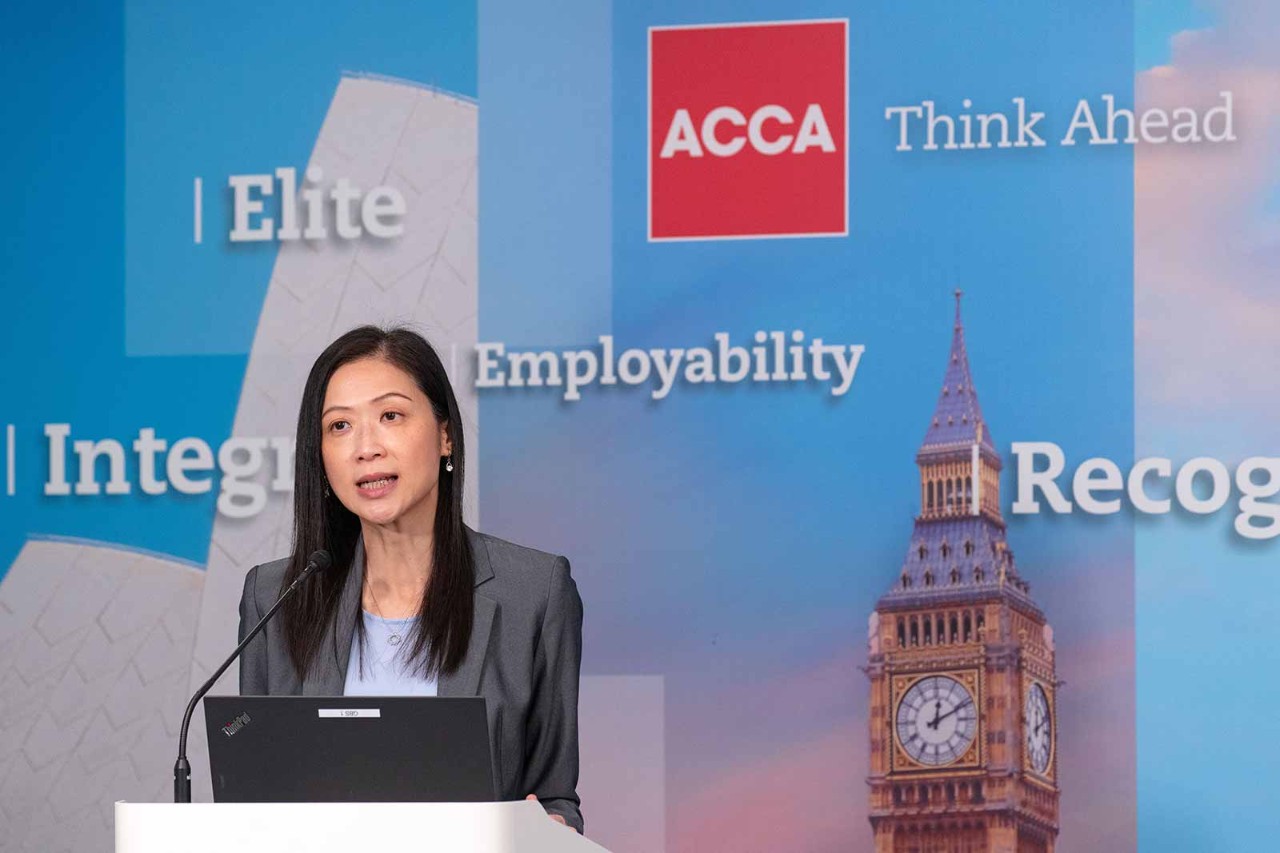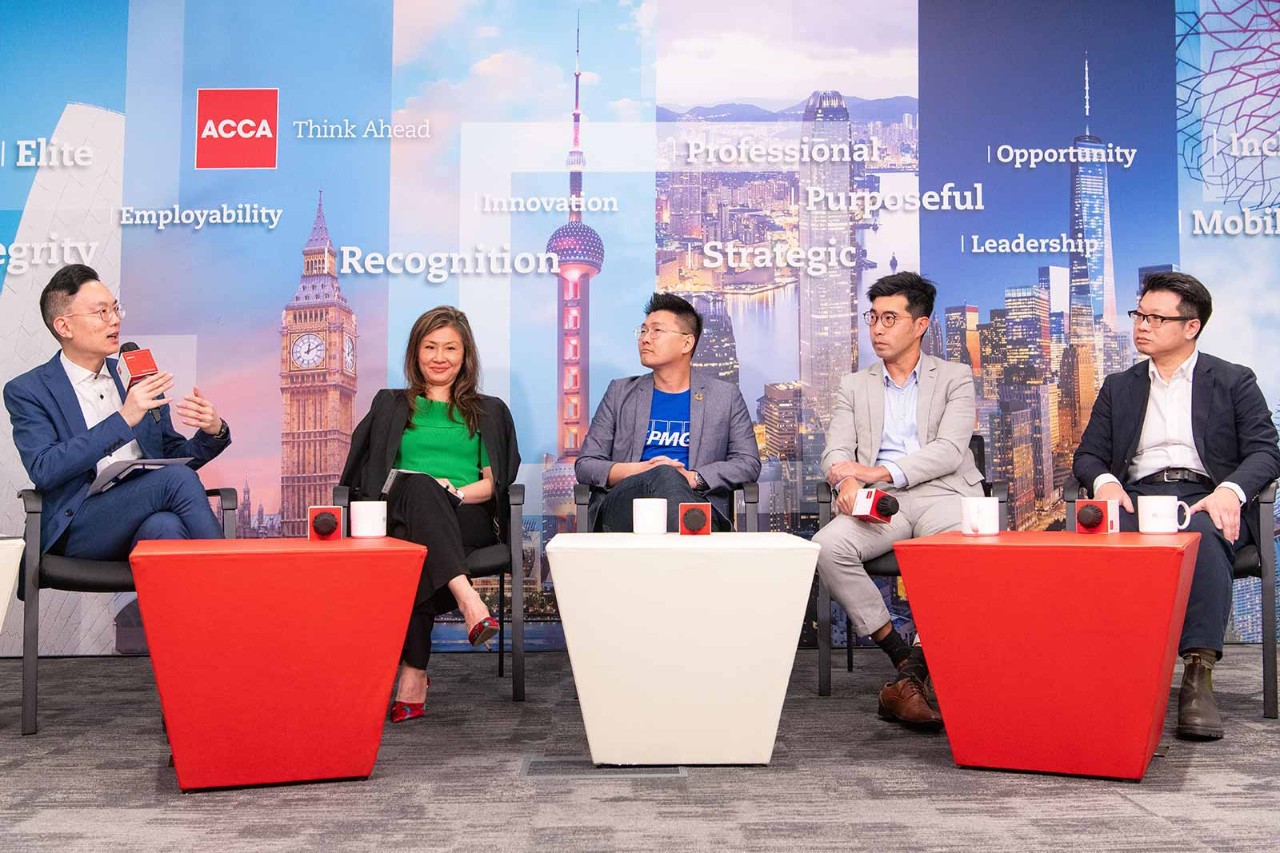
Hong Kong has introduced several tax regimes including a family office exemption, while keeping up efforts to develop emerging industries and rolling out tax incentives.
In the years ahead, further developments in tax are likely, such as adding capital gains to the foreign sourced-income exemption regime, more certainty on capital claims for onshore equity disposal gains, and implementing the global and domestic minimum top-up taxes, said Anita Tsang FCCA, director of tax policy and knowledge management at KPMG.
Speaking during the ACCA Hong Kong Virtual Tax Conference 2023, she presented an overview of Hong Kong’s tax updates.
A panel discussion shined a spotlight on a range of emerging tax issues that businesses face, including environmental, social and governance (ESG) and green taxes, family offices, crypto assets and R&D incentives for start-ups, along with exploring new ways to create value for businesses and discover untapped opportunities.
‘The demands from families cover all industries, from finance to retail to innovation’


Family office
One key goal for Hong Kong is to continue to develop as an asset management centre. The Special Administrative Region has taken several steps to strengthen its position in this area, with the family office a key focus for the asset and wealth management industry. More than US$1.7 trillion in relevant assets were managed in Hong Kong in 2021, including those of private trust clients.
The Hong Kong government has created a department within InvestHK to encourage and facilitate overseas businesses to set up and expand. ‘The demands from families cover all industries, from finance to retail to innovation.’ said Christine Ho, deputy global head of family office at InvestHK.
‘The finance industry is also looking to the opportunities from the growth of family office setups. Hong Kong has excellent infrastructure to meet families’ needs in asset growth, asset preservation, lifestyle, and social impact.’
Stanley Ho FCCA, co-chairman of ACCA Hong Kong’s tax sub-committee and a tax partner at KPMG, said that there are efforts under way to create an ecosystem for family offices: ‘For example, the ecosystem includes law, insurance, securities and administration services.’
One important consideration for family offices looking to set up in Hong Kong is tax, with Hong Kong expected to offer concessions to eligible single-family offices with minimum asset thresholds and substantial activity.
‘With this regime, assessable profits derived by a family-owned investment holding vehicle (FIHV) managed by a single-family office, from qualifying and incidental transactions, will be taxed at 0%, subject to certain conditions,’ Tsang noted.
‘The regime is a part of the big picture. It offers a tax certainty, which is quite flexible,’ said Roy Phan, a partner in Deloitte China’s international tax services practice. ‘Moreover, the regime is on a self-assessment basis; there is no need for pre-approval.’
There are several issues that have drawn the attention of the industry and need to be clarified. ‘The requirement of exercising central management and control in Hong Kong for FIHVs may be impractical for wealthy families based overseas,’ said Tsang.
Phan added that the scope of qualifying assets currently may not reflect the wide range of assets invested by family offices, such as art pieces and digital assets.
Innovation focus
In addition to family offices, the Hong Kong government is also putting effort into developing innovation, technology and green finance.
‘The government of HKSAR offers a lot of funding support to technology companies in Hong Kong, including funding programmes for hiring and nurturing research talents and interns, programmes for supporting research and development, programmes for technology adoption and commercialisation, and programmes for business development and marketing in Mainland and overseas markets,’ said Wesley Wong, head of funding management and TecONE at the Hong Kong Science and Technology Parks Corporation, adding that the organisation offers free consultations on funding programmes, as well as providing support to nurture technology companies under its Ideation, Incubation, Acceleration and Elite programmes alongside its Venture Fund.
‘When we talk about sustainable finance, it is critical that the underlying subject matter must be related to ESG’
More information
Read our articles on ACCA Hong Kong’s Virtual Tax Conference 2023: ‘A bigger magnet for investment’ and ‘Refining Hong Kong’s tax system’
‘To understand the objectives and requirements of funding programmes is the key of success to applying for these funds.’ he said, adding that auditors and accounting professionals can support the application process by, for example, helping with project audits and keeping documentation records.
To further improve innovation and technology, the government will introduce a ‘patent box’ tax incentive to provide tax concessions for profits sourced in Hong Kong from qualifying patents generated through R&D activities.
Going green
Hong Kong is also taking steps to make full use of its infrastructure and evolve into a green finance centre.
‘When we talk about sustainable finance, it is critical that the underlying subject matter must be related to environmental, social and governance considerations such as climate change mitigation and adaptation,’ said Richard Lin, a partner in carbon management and EU Green Deal and China head of compliance carbon market at KPMG.
Lin pointed out that environmental, social and governance (ESG) attracts a lot of attention and carbon emissions are one of the most important factors for businesses to consider. A current trend is that more and more jurisdictions are trying to introduce carbon pricing and carbon tax.
’Carbon [emissions] had not been a factor in M&A and due diligence previously. And yet carbon emissions and the potential carbon tax cost has become a key topic in a transaction.’ Lin said, noting that some jurisdictions have also introduced green subsidies for companies that prove their commitment, and tax professionals can help companies tap into these subsidies: ‘Let’s join hands in building a sustainable and green world.’

